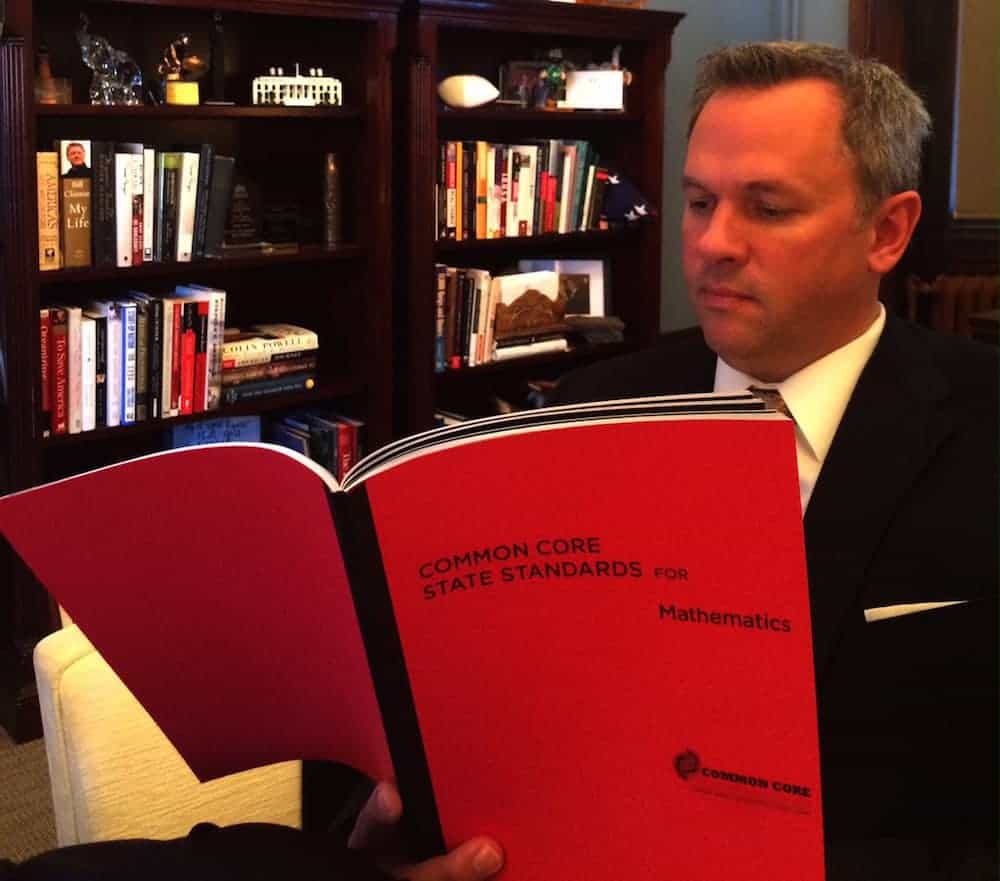

I believe North Carolina should have the highest education standards in the world, but we can do better than Common Core.
Four years after Common Core was adopted by the State Board of Education, many students, parents, and educators are getting their first glimpse of the implications of the new standards in the classroom.
After months of questions about the challenges of the standards from parents and educators, few answers have been revealed. Two things are now clear to me. Common Core is not a partisan issue. And, no matter where one stands on the Common Core spectrum, everyone can agree that we all want what is best for our children in North Carolina.
I get asked quite often about my thoughts on Common Core, so I thought I would write down six key issues I have:
- Local control of education is a bedrock of our nation. Parents, teachers, and school boards should have ultimate control and authority over the education of their children. Common Core is a copyrighted set of standards, designed by two unaccountable national trade associations and pushed by the federal government through Race to the Top grants ($400 million in NC) and/or No Child Left Behind (NCLB) Waivers for states that adopted the standards. These standards cannot be changed or modified by state or local authorities. The argument is that we can add to them, however, the reality is that we cannot change anything written in them. Common Core is not flexible in meeting the demands of rapid change that is occurring around the world.
- A One-Size-Fits-All set of standards for all of education in America is unAmerican. America is a nation of diversity and innovation. Each student is unique, and for the first time in the history of the world, through high-speed broadband technology and one-to-one devices in the hands of every student, we have the opportunity to customize curriculum and the education experience to each and every child. Our 50 states should be recognized for the innovation laboratories that they are, and they should be allowed to innovate in education, constantly improving education and teaching methodologies in order to share their ideas with other states. A one-size-fits-all set of standards restricts that level of innovation.
- Why would we settle for anything less than the best standards for North Carolina? Massachusetts had the best math standards in America, so why did we not start by adopting their standards for our students? Massachusetts educators improved their standards over decades, and they had been tried, tested, rewritten, and aligned with working assessments. Instead, what do we do? North Carolina rolls out a set of standards which had not been tried, tested, or rewritten for success, without aligned assessments available, expecting Common Core to be the silver bullet to improve our education system. Why would we roll out Common Core to every school and every student in our state, all at once, without proper vetting and testing?
-
Common Core does not prepare our students for STEM education or careers. The promise of Common Core was that it was to be rigorous, internationally benchmarked, and it would prepare our students for college and career. Unfortunately, experts admit that rigor is difficult to define; the standards were never internationally benchmarked, and there is much debate as to Common Core college alignment – in fact, the definition of Career and College Ready was just adopted last month during the NC State Board of Education meeting. It was claimed that these standards were career and college ready without any definition in place to verify the claim.
Experts and members of the Common Core Validation Committee have noted that the Common Core Math Sequence does not prepare our students for a rigorous STEM education at the university, nor does it prepare our students for STEM careers. Experts have also noted that there is no evidence that replacing classic literature with informational text, such as Consumer Reports, helps our students develop better critical thinking or reading skills, as has been noted by common Core State Standards (CCSS) proponents.
- Teachers need to be free to teach. Common Core is not merely standards. It is a complete shift in pedagogical delivery, which includes assessments and curriculum. Common Core is a set of difficult to understand bureaucratic mandates that will force teachers to teach to the test. There has been much frustration from the teaching community regarding this aspect of NCLB, so the federal government created waivers from NCLB only to replace it with more burdensome guidelines that will take creativity and innovation out of the classroom. If we want innovation in education, we should focus less on standards and more on allowing our teachers to do what they do best – teach.
- Cost of Implementation. Four years after adopting Common Core in North Carolina we have yet to create a comprehensive budget for implementation. It is estimated that our state will spend at least $350 million, and upwards of $1 billion to cover assessments, technology, professional development, and resources needed to fully implement the standards. While we are in the middle of raising pay for teachers and establishing a new Digital Learning Plan for North Carolina, Common Core implementation costs don’t offer us the best bang for our buck.
In the end it will not be standards that change our education system, but a wholesale, fundamental shift in the way we educate. Mastery-based learning, removing excessive testing and unnecessary mandates from our classrooms, treating our teachers like professionals, customizing curriculum to our students gifts, needs, and desires. These are things that are going to transform education. Let’s put standards in their proper place and then get down to business.




